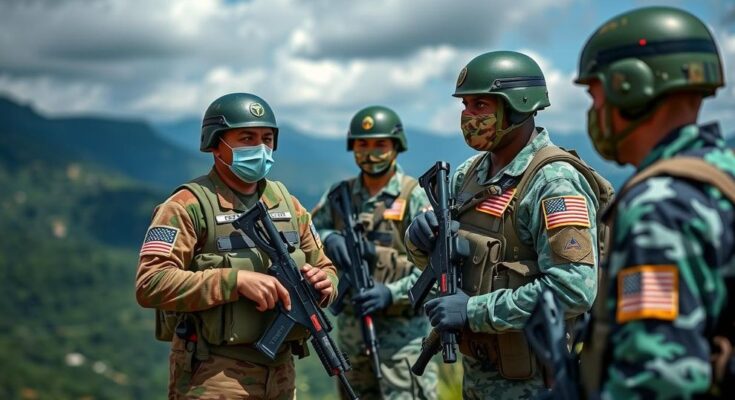The U.S. is working to convert the Kenya-led force in Haiti into a U.N. peacekeeping mission due to severe gang violence. Current efforts face challenges from Russia and China regarding approval within the U.N. Security Council. The force has not reached its targeted size, and funding deficits further complicate its operations in supporting Haiti’s national police.
The United States is intensifying its initiative to convert the Kenya-led multinational force in Haiti into a United Nations peacekeeping force amidst a severe escalation of gang violence in Port-au-Prince. Following a surge of attacks and political turmoil leading to the dismissal of the interim prime minister by Haiti’s transitional council, U.N. reports indicated that gangs now control approximately 85% of the capital. The U.S. proposed this transformation to secure ongoing financial support for the operation designed to assist Haiti’s national police in combating the rampant gang activity. Efforts by the U.S. to secure approval from the U.N. Security Council for a draft resolution aimed at initiating this transition have encountered obstacles, particularly from Russia and China, which have expressed reservations. Russia is seeking further briefing and discussions before giving its approval, further complicating the timeline for this critical change in strategy. As it stands, the deployment of the multinational force, intended to consist of around 2,500 international police, has so far only achieved a fraction of that, with approximately 430 officers currently in Haiti. In light of the dire situation exacerbated by inadequate funding—which currently stands at approximately $85.3 million against a committed $300 million—Haitian authorities have repeatedly called for international assistance in the form of a U.N. peacekeeping force. The population’s mixed sentiments reflect historical skepticism towards foreign interventions, given previous missions in Haiti marred by serious allegations and humanitarian crises. It remains uncertain whether the new U.S. administration will maintain its financial support for such an operation.
The article discusses the United States’ efforts to transition the Kenya-led multinational force in Haiti into a U.N. peacekeeping force in response to significant gang violence and instability in the region. This situation has worsened with gangs taking control of most of Port-au-Prince and political crises arising from the interim government’s failures. Previous U.N. interventions have left a complicated legacy, impacting public perception and governing needs in Haiti.
In conclusion, the urgency to establish a U.N. peacekeeping force in Haiti has been magnified by ongoing gang violence and political instability. The U.S. aims to facilitate this transition to provide needed support to Haitian national forces while navigating complex international diplomatic waters. Despite some advances, challenges remain in securing adequate funding and a unified international response, complicating future peacekeeping efforts.
Original Source: apnews.com




